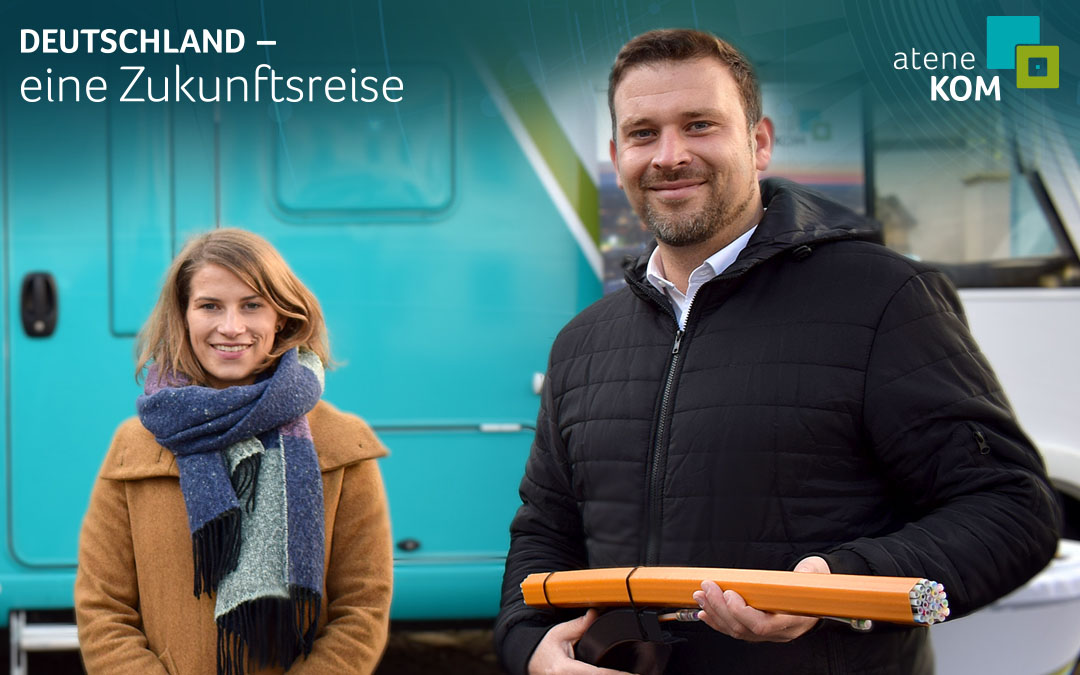On the aconium GmbH future journey, we meet people for whom digitalization is more than just a buzzword. 3 questions for … Fabian Liedl, business promoter in Weiden in der Oberpfalz.
Mr Liedl, to what extent are digitalization and gigabit expansion important for your work as a business developer?
Fabian Liedl: High-speed Internet has now become a key location factor for companies. The rapid, comprehensive expansion of broadband has therefore become considerably more important for local authorities. Ensuring optimal framework conditions for local companies and those interested in relocating is a key concern, especially for business development. This makes a sustainable and comprehensive gigabit expansion all the more important, especially in rural areas. In addition to these infrastructural requirements, digitalization plays an equally important role as a soft factor. Unlike broadband expansion, however, digitalization is much more diverse and ranges from process optimization and the expansion of a company’s own online presence to artificial intelligence and automation. All of this has long been taking place in Weiden companies. From the perspective of business development, the topic of digitalization is an essential part of both location marketing and business support – be it in the area of funding advice or support for brick-and-mortar retailers.
For which sectors is digitalization particularly important?
Liedl: Advancing digitalization is fundamentally changing society’s perception, behaviour and expectations in an extremely fast-moving way. All sectors must respond to this in equal measure, whether in terms of contemporary recruiting, the implementation of new tools in day-to-day operations or niche staffing and the associated potential for the start-up scene. Digitalization offers a wide range of opportunities to break new ground.
Why do you think there is an urgent need to raise awareness among all citizens and stakeholders in administration, business and science?
Liedl: Simply because digitalization has become and will remain an integral part of our lives and everyday life. At the same time, technical progress and changes in the way we communicate are developing at a much faster pace than society can sometimes cope with. This makes it all the more important not to lose touch and to stay up to date. This applies to all age groups and stakeholders.

